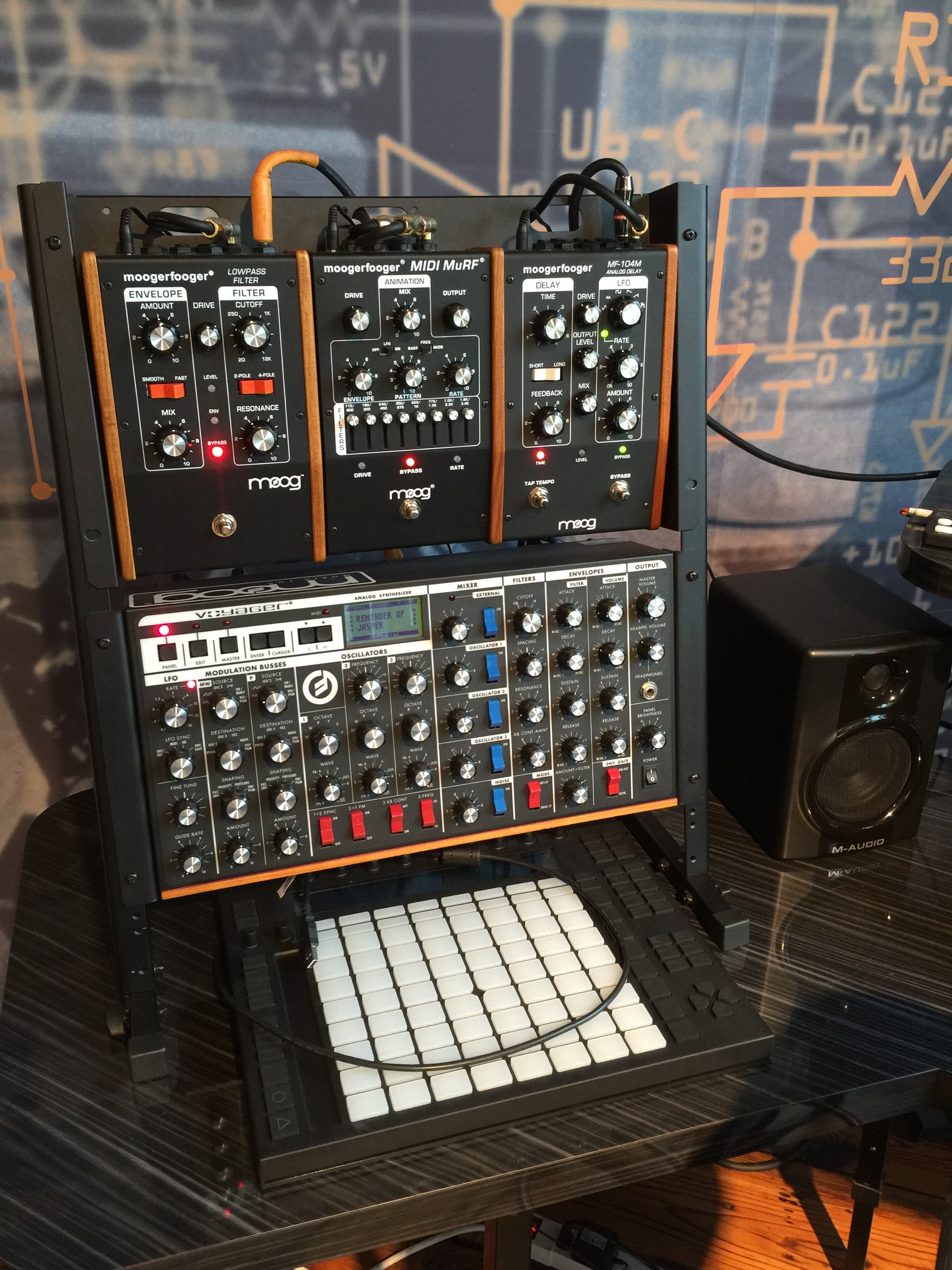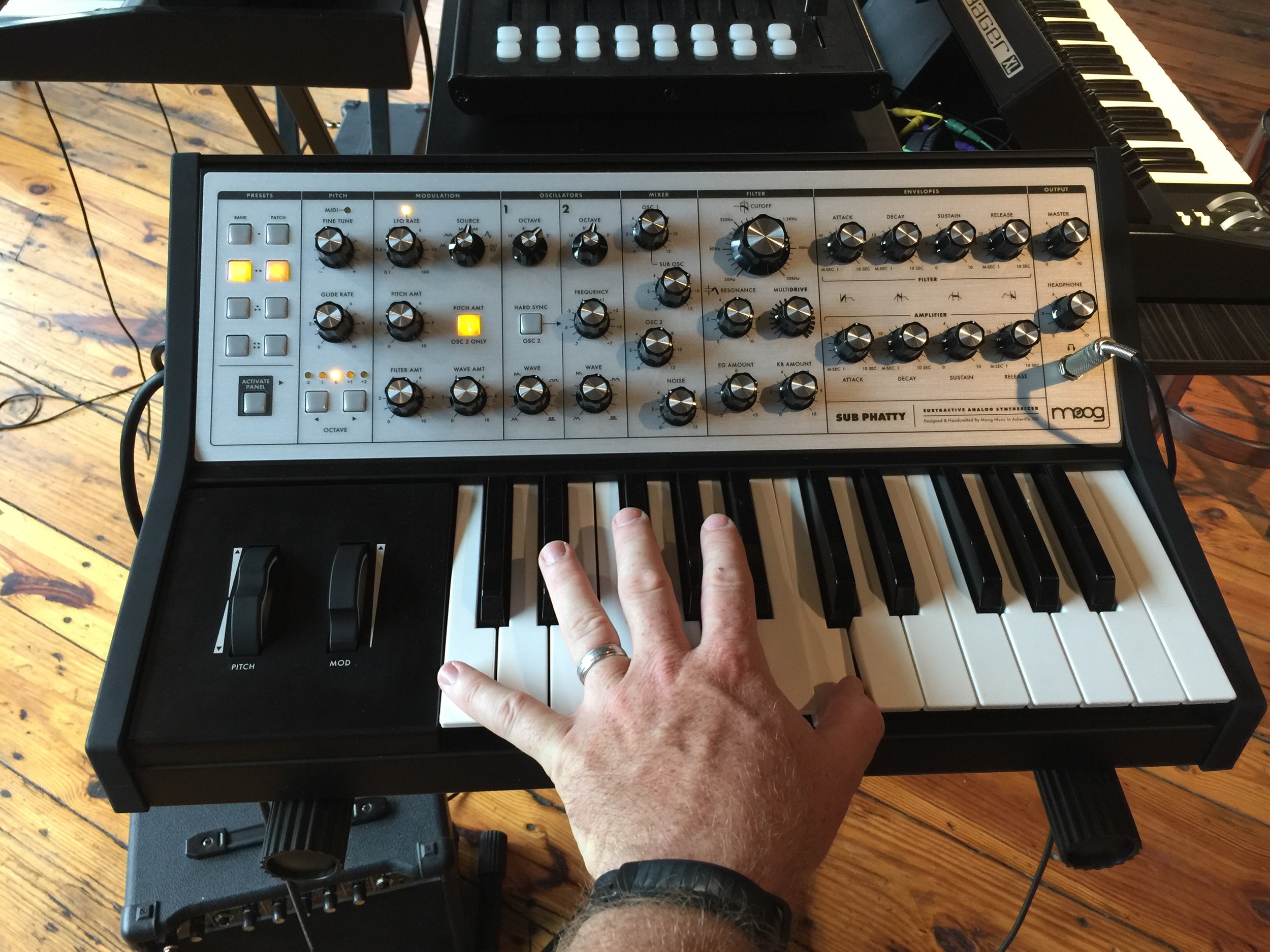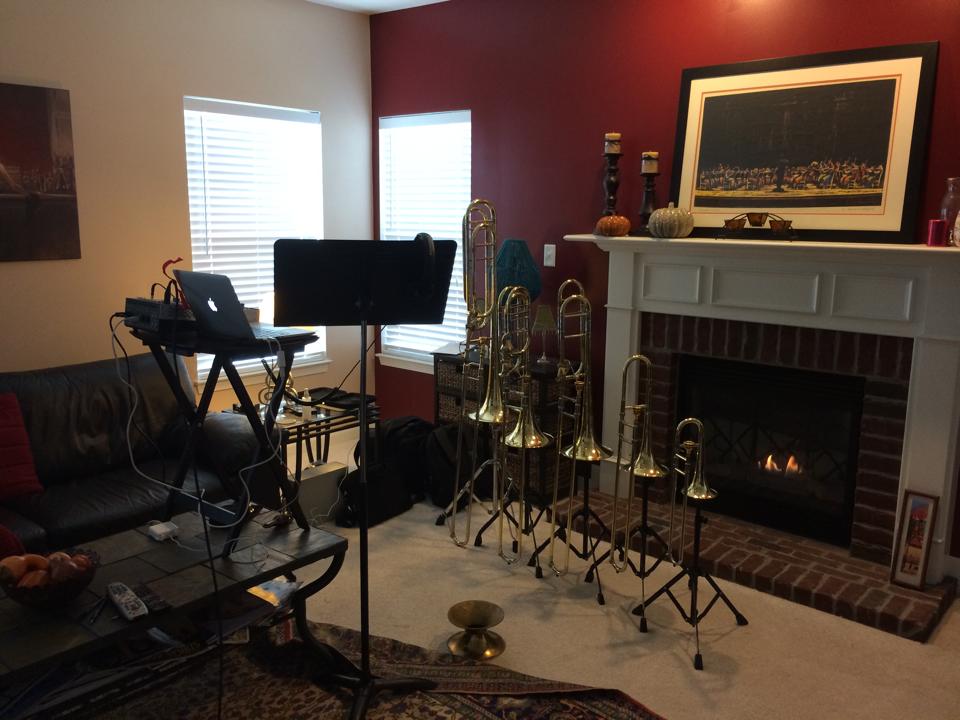About a year ago, I was surfing Facebook and I came across a post by my long time friend and fellow Curtis graduate, Jim Nova. The post was a link to Jim's Soundcloud page, and it contained a recording of a trombone choir arrangement of a John Williams piece, something from Star Wars. I clicked on it... ...and I was just blown away! Jim has taken a huge body of work by John Williams and some other composers, and arranged (mostly himself) the tunes for trombone choir. The amazing thing is that he has recorded all these pieces and played all the parts himself! If you haven't heard them yet, do yourself a favor and go RIGHT NOW to his Soundcloud page to give it a listen. Then, come back and finish reading this post...
After a number of times of being totally taken with Jim's playing, arranging, and recording skills, I decided I really wanted to learn more. So, I got in touch and we set up a time to meet via Skype and talk about Jim's ongoing project, hobby, passion, and outlet.
Jim is currently the second trombonist of the Pittsburgh Symphony, and was previously a member of the trombone section in the Utah Symphony. Jim attended Curtis, where he studied with Glenn Dodson, and then headed to Boston for further studies with Norman Bolter.
I had two basic questions for Jim: Why? and How? We had a wonderful conversation about those two topics and more, and Jim could not have been more generous with his time and passion for his music-making.
Jim said that when he came to Pittsburgh, his position was advertised as "second/utility trombone", which usually means there is bass trombone playing involved. Knowing he was joining a section that contains Murray Crewe as the bass trombonist, Jim said he didn't feel comfortable subbing in with the bass trombone skills that he possessed at the time. So, he obtained a "real" bass trombone from Steve Shires and got to work. He stumbled on the trombone choir arrangements as a way to push himself musically, as well as give him something fun to do. We reminisced that Glenn Dodson used to do the same thing to get in shape for the Philadelphia Orchestra's season. Glenn made a number of beautiful trombone choir arrangements, and he would record all the parts using a digital 8-track recorder.
Jim notes that his father has been a big influence on his life and career as a trombonist. He states, "If I brought home an A minus, my father would always want to know why it wasn't an A! He always said that's not good enough for a Nova!" Jim and his father have also collaborated on a solo CD, titled "Albanian Rhapsody", which if full of some beautiful trombone playing.
Jim also notes that he is "a walking advertisement for Steve Shires (trombones) and Greg Black (mouthpieces). Jim has a collection of horns that would make the most seasoned L.A. studio player drool, and unique (but functional) mouthpieces to fit each horn he plays (each with the same rim). Currently in his arsenal, Jim has his "regular" Shires tenor trombone, a Shires alto trombone, a Shires bass trombone, AND a soprano and contrabass trombone. The contrabass is "on loan, but I'm probably gonna need to buy one soon." I love it, finally, someone that actually NEEDS a contrabass! His range of mouthpieces is quite interesting. Greg Black has managed to provide Jim with the same rim on each mouthpiece, from his contrabass piece on up to the soprano. While that may sound somewhat unusual, you certainly can't argue with the results! Jim feels that he gets the same "anchor point" by using the same rim on each horn. Greg Black has managed to provide Jim with the correct taper from the rim to the cup of each mouthpiece to facilitate this concept.
As for the recording process, Jim said he started out finding his way and figuring things out on the fly. He notes that many of his early arrangements weren't written down. He would read off the orchestral score, and record a few measures at a time on whatever horn he needed to fit the range the part was in. Jim comments, "In the beginning, I would look at some of the crazier licks in the music and just think, well, let's see what happens!" He also told a funny story about a conversation with Michael Hosford (long time NYC trombonist) where Mike asked him, "so Jim, have you thought about adjusting the pan on the voices in your tracks?" Jim said he replied, "pan...what's that???". Amazingly, Jim has only been working on these recordings for about two years. He has clearly learned all about pan and sound field position, and a whole lot more!
Jim notes that techniques, range, and endurance that once seemed at the edge of his ability now doesn't seem like such a big deal. As a demonstration, he picked up the contrabass he has on loan and proceeded to play a part with triple tongued pedal Cs... It was ridiculous to hear, but it sounds great! Also, his alto and soprano trombone playing are just amazing.
Jim began his recording projects using Audacity (free recording software) and when he got the piece done, he would add reverb via GarageBand. Now, he has graduated to using Logic Pro and has upgraded his microphone setup to a Neumann TLM193. He keeps all his horns lined up in his studio on stands, and he has his computer and recording gear on a standing workstation so he can stand in one place to play, switch horns, and run the studio setup. His process has "become much more streamlined since the beginning". He does still record just a few measures at a time, rather than laying down one complete part from beginning to end, before moving to another voice in the arrangement. Following is a good representation of what goes on in the Nova household!
 Blind Boys of Alabama
Blind Boys of Alabama
 Moog factory tour
Moog factory tour At a concert the other day, a young man approached me at intermission and, literally, asked me the question above....
At a concert the other day, a young man approached me at intermission and, literally, asked me the question above.... 


